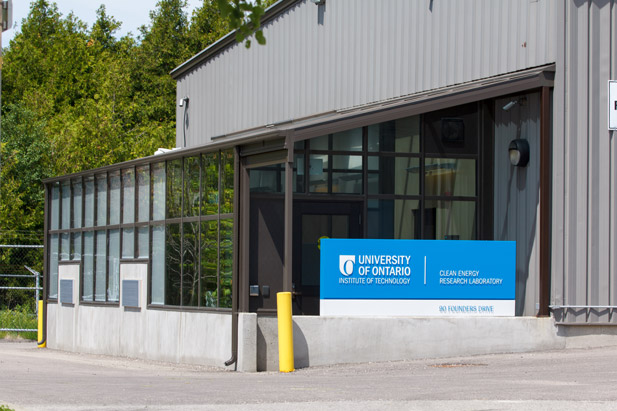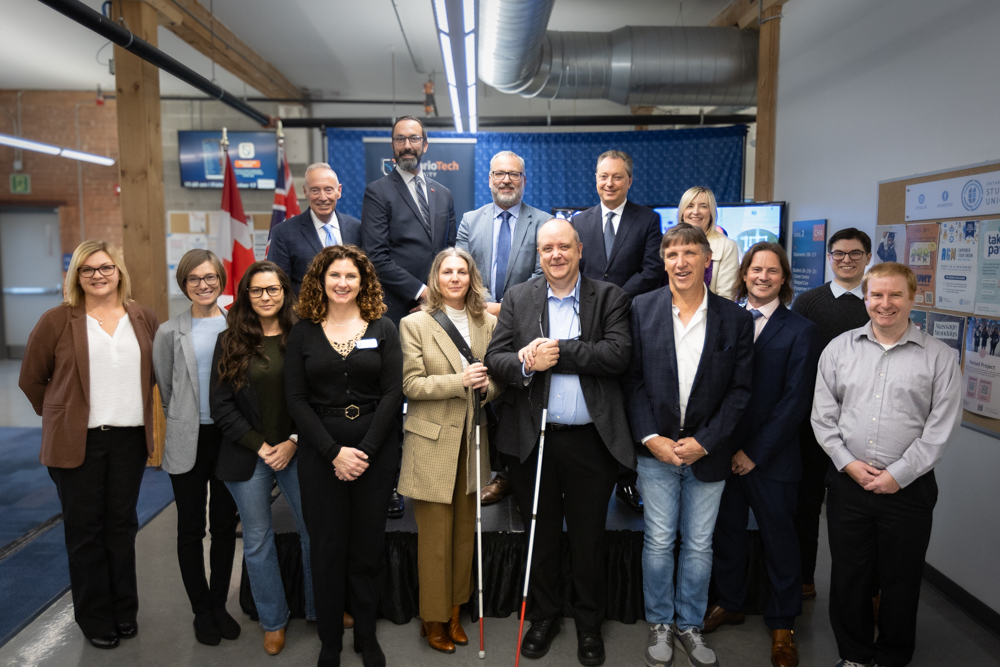New evidence on greener energy solutions to be presented at Los Angeles conference
September 15, 2016

LOS ANGELES, CA, USA – New research findings on renewable ammonia as one of the greenest fuel sources are to be presented publicly for the first time at a Los Angeles conference next week. The 13th Annual Ammonia Fuel Conference from September 18 to 21 at UCLA will bring together experts from around the world on anhydrous ammonia (NH3), the leading-edge liquid fuel of the expanding green energy sector.
Greg Vezina, chairman of Mississauga, Ontario-based Hydrofuel Inc. will be releasing two comprehensive studies of the Key Life-Cycle Numbers for NH3 and other fuels conducted jointly by his company and Professor Ibrahim Dincer’s clean energy research group at the University of Ontario Institute of Technology (UOIT) in Oshawa, Ontario. Fuel life-cycle numbers are valuable because they help predict fuel performance, particularly with regard to emissions.
Ammonia is an extremely promising fuel source because it contains absolutely no carbon. Ammonia is considered environmentally friendly because its use can help reduce global (carbon) GHG emissions.
Ammonia gas (molecules which are basically one part nitrogen and three parts hydrogen) occurs in nature in only limited quantities. ‘Green ammonia’ gas (NH3) is manufactured from air and water using clean renewable energy sources. Hydrogen is ‘captured’ from breaking down water (H2O) in a sustainable process, while nitrogen comes from air (air is about 78 per cent nitrogen).
Professor Dincer’s research findings indicate green ammonia is the best alternative to fossil fuels in an extensive range of applications, and even better than most other renewables on several parameters. His group’s findings show:
- NH3 helps reduce life-cycle costs and emissions in numerous transportation applications by more than 50 per cent.
- As a carbon-free fuel, fertilizer, refrigerant, working fluid and hydrogen storage media, NH3 is a uniquely broad green solution to global energy and environmental challenges.
- NH3 is the most environmentally benign transportation fuel compared with gasoline, gaseous or liquid hydrogen, liquefied petroleum gas, diesel, compressed natural gas, electric (where electricity is created from fossil-fuel driven plants*) and hybrid electric vehicles.
*Electricity production in a diesel co-generation plant emits more than twice the amount of greenhouse gas when compared to an equal energy quantity of NH3.
Green ammonia can be produced using fossil fuels or from any renewable energy source using heat and/or electricity. NH3 and hydrogen applications have been developed for sectors including but not limited to: transportation, industrial, commercial, utility, agricultural, and the chemical industries.
Modern high-efficiency ammonia/urea plants using natural gas and other hydrocarbon feed stocks can be built alongside natural gas power plants and oil sand extraction sites. Utilizing the waste, process or low-grade heat can further provide a significant reduction of costs and emissions.
Over several years, Hydrofuel Inc. and UOIT studies have covered many aspects of the production and applications of use for ammonia. Hydrofuel Inc. and the university hold several international patents and patents pending including existing engine retrofit conversion and new engine designs, technologies for the production of hydrogen as a by-product, and the creation of high-efficiency heat production.
For further information, please contact:
University of Ontario Institute of Technology (UOIT)
905.721.8668 ext. 6709
289.928.3653 (cell)
communications@ontariotechu.ca
About Hydrofuel Inc.:
Hydrofuel Inc. and its affiliate, C.A.E.C.-Canadian Alternative Energy Corp. (C.A.E.C.), of Mississauga, Ontario, have more than 35 years experience in NH3 (Ammonia) fuel conversion systems and related technologies for automotive and power generation applications. Hydrofuel® is a registered Trade-Mark.
About the Ammonia Fuel Conference:
The Thirteenth Annual Ammonia Fuel Conference, September 18-21, 2016, at UCLA’s Luskin Conference Center, in Los Angeles, California, is co-hosted by the NH3 Fuel Association and the UCLA Sustainable Technology & Policy Program (UCLA-STPP). Corporate attendees include Siemens, Lockheed Martin, Toyota, Nissan and Delphi and Universities and Academic organizations, inventors and individuals from Canada, the USA, Australia, China, Japan, Republic of Korea, UK, Greece, Netherlands, Turkey and other countries. nh3fuelassociation.org



